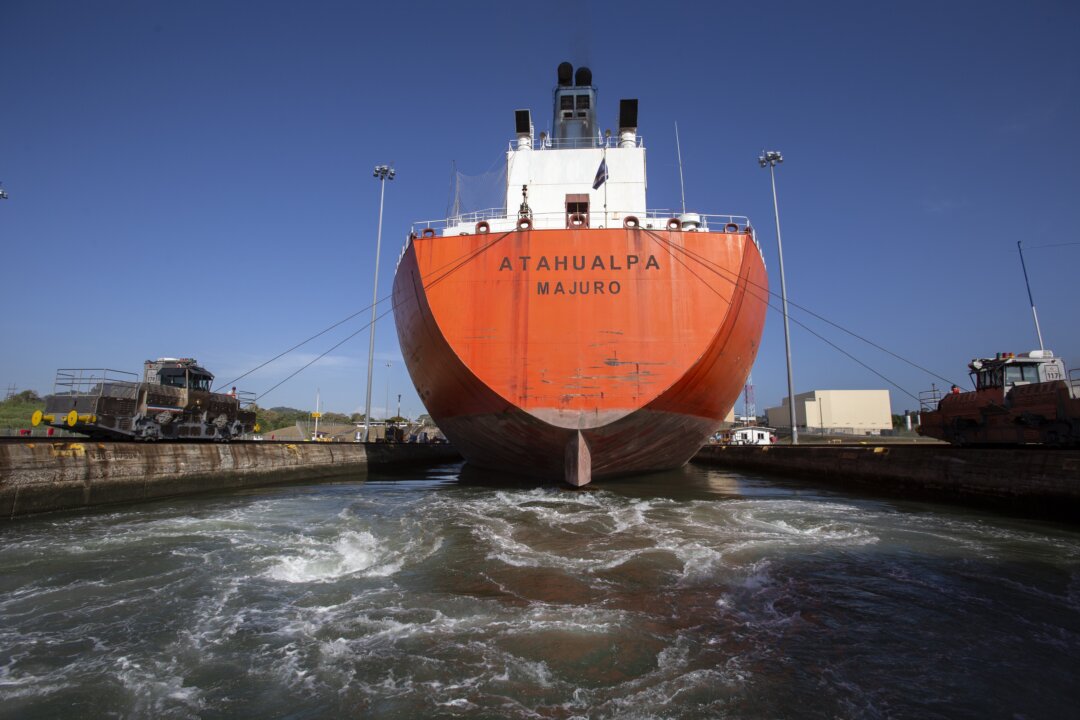The Panamanian president said there has been no agreement to allow U.S. warships to transit the canal for free.
Panama’s president said he is scheduled to speak with President Donald Trump on Friday, after denying on Thursday a deal had been struck to allow American warships to pass through the Panama Canal for free.
“I was told a few minutes ago by a senior official that I will be speaking with President Trump tomorrow at 3:30 p.m.,” Panamanian President Jose Raul Mulino announced on X.
During a weekly news conference on Thursday, Mulino disavowed a U.S. State Department claim that it reached an agreement to allow American warships to transit the Panama Canal for free.
“I completely reject that statement yesterday,” Mulino said, adding he had asked Panama’s ambassador in Washington to dispute the State Department’s statement.
Secretary of State Marco Rubio, who visited Panama on Feb. 2 after Trump claimed that China controls the canal, responded on Thursday there was no confusion when he met with Mulino and canal administrators.
Rubio said the United States is obligated by treaty to protect the Panama Canal if it comes under attack, calling it “absurd that we would have to pay fees to transit a zone that we are obligated to protect in a time of conflict.”
On Wednesday, Mulino said he told U.S. Secretary of Defense Pete Hegseth that he didn’t have the discretion to set canal transit fees nor exempt anyone from them.
Mulino expressed surprise at the U.S. State Department’s statement on Wednesday that suggested otherwise, saying it was false and “intolerable.”
The Panama Canal Authority released a statement Wednesday night denying that any fee adjustments had been granted. However, the statement added that it will “engage in dialogue” with the U.S. government regarding military ships.
Ilya Espino de Marotta, Panama Canal deputy administrator, told The Epoch Times last week that U.S. Navy ships were given preferential treatment in terms of waiting in line and didn’t have to pay for reservations.
U.S. Navy ships and auxiliary military ships, which carry military-related items for the United States, are not required to make a reservation to transit the canal like other ships—nor do they pay extra for that privilege.
“Reservations cost between $15,000 to $200,000 depending on the size of the vessel,” she said. “So the U.S. does not have to make a reservation, nor pay for a reservation and go to first of the line,” she said.
During his visit, Rubio said he told Mulino that Trump believed China’s presence around the canal might violate the U.S.–Panama Neutrality Treaty, which was part of the agreement turning over control of the American-built waterway to Panama in 1999.
Chinese companies control ports on the Pacific and Atlantic sides of the canal, while state-owned Chinese companies are building a fourth bridge over the canal.
Military and policy experts have expressed concern, leading some experts to worry that China could shut the canal down if an armed conflict with the United States broke out. The communist regime mandates that businesses cooperate with China’s intelligence agencies.
The Associated Press contributed to this story.

